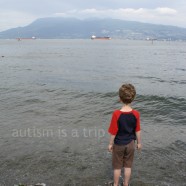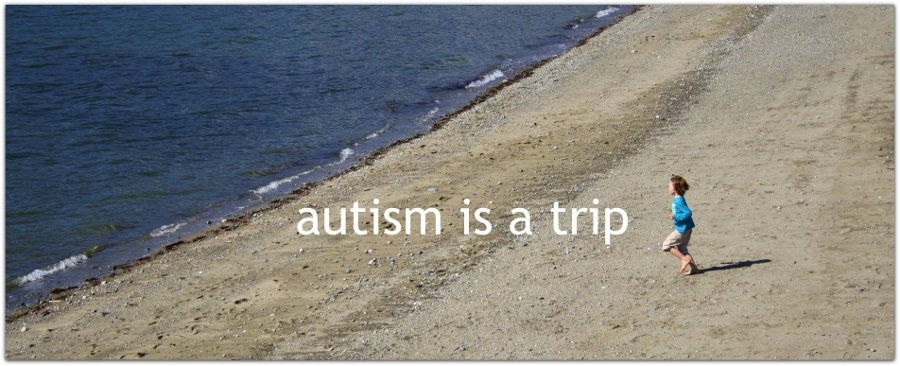
I also blog over at redOrbit.com, and this was my other post as part of “An Outpouring of Love for The Mikaela Lynch Family.” To read more entries from other writers, please visit this site. You can see the original post here. Sadly, several more autistic children have drowned since I wrote this article not two weeks ago.
******************************************************************************************
There is a question many are asking in the wake of Mikaela Lynch‘s disappearance in Clearwater, CA last week. Actually, there are a lot of questions being asked by a lot of people, but there is one that I, and many in the autism community, would really like an answer to.
Why was there no Amber Alert for this missing nine-year-old girl?
It’s important to understand that not all missing children get an Amber Alert issued for them. In order to “qualify,” missing children must fit certain criteria. Primarily, the family must be able to prove the child was abducted, and preferably give a description of the abductor and/or their vehicle.
A missing autistic child does not fit the criteria for an Amber Alert, yet the dangers are just as real and just as imminent as for one who has been abducted.
Over half of all autistic children are “runners”: children who, given the chance or the right circumstances, will simply go. Take off. Run. Sometimes there is a destination, oftentimes there is not. My child runs when he doesn’t want to leave somewhere or when he’s off in “his world,” as we call it. He gives us very few clues as to where and when it might happen, so we are always wary. It doesn’t happen very often with him, but many autistic children are continuous flight risks, meaning their families are on high alert at all times, day and night. Their houses are fortresses of locks and gates and barriers and alarms.
Another curious thing about autistic children? They’re fast. Faster than you’d ever think, and highly trained in the arts of evasion. If an autistic child wants to run and you’re not ready for it, there’s not a whole lot you can do other than hope you can run faster. Or hope there’s someone on the other end who can run interference. A lot depends on hope.
Mikaela was nonverbal. She could not speak, nor really understand the world around her past the cognizance level of a very young toddler. Mikaela was also not toilet trained. That’s not unusual for children on certain parts of the autism spectrum, nor is it a surprise to anyone who has an autistic family member or knowledge of autism. Autism parents talk about speech competence and toilet habits in the same breath. It’s just another part of life. And no, it doesn’t matter if she was or was not able to use the toilet herself, but it speaks to her vulnerability. It’s not newsworthy in any kind of sensational way.
Autistic children are barraged with sensory input, and are equally drawn to things that stand out to them. Mikaela, like many children, loved water. Given the chance, she went to the water. Mikaela had sensory issues with her clothing – typical among individuals on the spectrum – and liked to shed it when she was hot. Within minutes of leaving her home, she was naked. A naked nine-year-old girl, running down the street, headed for water.
I cannot imagine putting a child in a more vulnerable situation.
Knowing these things about Mikaela, it becomes a little easier to see why she may have taken off in such a hurried manner. How often do parents find themselves chasing toddlers who have run off after a butterfly or a car or a cloud? Who strip naked at the drop of a hat? Small children are amazed with the world, and they want to embrace it. Individuals with autism experience the world much in the same way. To them, everything is bigger and louder and brighter and more extreme (this is an excellent video that attempts to replicate how an autistic person experiences their environment).
Autistic children with a high-risk of eloping (running) can be fitted with a tracking anklet or GPS tracking device in their school bag (there are bracelets and watches, too, but those can be torn off by an extremely sensitive individual). There is an endless array of identification items for autistic children, everything from temporary tattoos to shoe ID tags. We’ve even resorted to writing our phone number on Jack’s upper arm where he can’t rub it off.
The majority of us in the autism community don’t need to ask what security measures Mikaela’s parents had in place to keep her contained and out of harm’s way. We can safely assume, knowing her abilities and cognizance level, that they had multiple precautions in place: locks, gates, constant supervision, etc. As will happen in the best of circumstances, life intervened. An unexpected chain of events led to Makaela being unsupervised for a moment. A moment she seized. A moment her family will never forget.
There is no one to blame for Mikaela taking her chance to run, nobody to fault. There is simply no way to keep a nine-year-old child under total surveillance without locking them away in a room. Things happen, life happens, tragedy happens.
It’s what happens next that’s important. Mikaela’s family was just minutes behind her, and called the police quickly. Hundreds of law enforcement and concerned citizens joined in the search. But because Mikaela was not abducted, there was no Amber Alert.
Perhaps they make a good point in narrowing the field of children to abductees, so that people don’t get desensitized to the alerts. The good they do, though, cann0t be denied. Amber Alerts go out over the radio, the television, Twitter feeds, text messages, email, up on SigAlert signs on highways, and more. Information about the missing child is spread far and wide within a very short span of time, and it has been proven to work, time and again.
Autistic children deserve that same attention. Mikaela was, sadly, not the first autistic child lost to drowning this year. Or even this month. She is, in fact, one of three children who have drowned in the last week alone.
Drowning is the leading cause of death for autistic children under the age of 14, and not by a small margin, either. 91%.
I can’t help but think that if an Amber Alert had been issued for Mikaela, perhaps someone may have taken a closer look at the child in the street. Or joined in the search. Or come forward with information they didn’t realize was relevant.
We can’t beat ourselves up for what might have been, but we can change the future for autistic children. If we can’t give them an Amber Alert, perhaps we need a new alert. One specifically for vulnerable autistic individuals. The family of Amber Hagerman, another nine-year-old who went missing, paved the way for the Amber Alert. As a result, countless children are alive today. Our children deserve the same attention, the same urgency, the same rapid dissemination of information.
We need an Autism Alert, and we need it now. We can’t spare any more of our very special babies.
To learn more about what you can do to help prevent wandering incidents and deaths within the autism community, please visit The AWAARE Collaboration.
This post is part of “An Outpouring of Love for The Mikaela Lynch Family.” To read other entries, please visit this site.
Share this: Twitter | StumbleUpon | Facebook | digg | reddit | eMail








